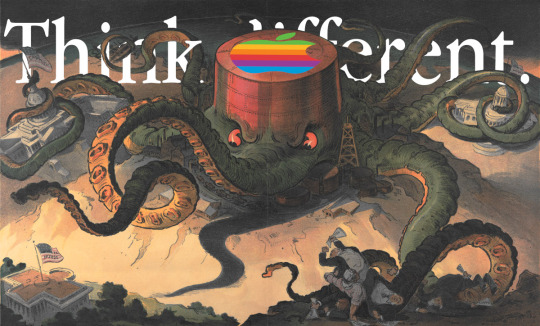#Mac apps
Explore tagged Tumblr posts
Text
LocalSend is amazing

I just wanted to post about a tool I’ve discovered recently and really like: LocalSend. I don’t keep many files in the cloud anymore aside from my pictures in Google Photos. But sometimes I still do need to get files between devices. I wanted a way to do it that was quick and easy and didn’t feel clunky. And LocalSend is the way.
It’s basically a cross-platform AirDrop alternative. I’ve installed it on all three of my main devices (phone, Macbook, and Windows PC) and now, as long as I am on my home network, I can easily drop files between them. That’s the only catch compared to AirDrop: you do have to have your devices on the same network, so it’s not really a useful tool to send files between people if you’re not somewhere that you’re both connected to the same WiFi. Although, I think you can use your phone’s hotspot as the shared network. So it’s not only useful while you’re at home or whatever. I have not tested this, but I probably will at some point.
For now though, it’s the perfect solution to getting my MP3s of remixes not available on Spotify transferred across my devices 🙂
0 notes
Text
Essential macOS Security Settings You Should Enable Today
macOS is known for its strong security, but no system is completely invulnerable. Whether you’re a casual user or a professional handling sensitive data, taking a few extra steps can significantly enhance your Mac’s security. In this post, we’ll walk through the most important macOS security settings you should enable to protect your data, privacy, and overall system integrity.
1. Keep macOS and Apps Updated
Keeping your macOS and apps up to date is one of the easiest yet most effective ways to protect against security vulnerabilities. Apple frequently releases security patches to fix exploits that hackers could use to gain unauthorized access.
How to Enable Automatic Updates:
1. Go to System Settings > General > Software Update.
2. Click Automatic Updates and enable:
• Download new updates when available
• Install macOS updates
• Install security responses and system files
• Install app updates from the App Store
This ensures that your system stays protected without you having to check manually.
2. Enable the Firewall
A firewall helps block unauthorized incoming connections that could be attempting to exploit your system.
To Enable the macOS Firewall:
1. Go to System Settings > Network.
2. Click Firewall and toggle it On.
3. Click Options and enable Block all incoming connections for an extra layer of protection (unless you need specific inbound connections for apps like AirDrop).
3. Use FileVault for Full-Disk Encryption
FileVault encrypts the data on your Mac’s drive, preventing unauthorized access in case your device is lost or stolen.
To Turn On FileVault:
1. Open System Settings > Privacy & Security.
2. Scroll down and click FileVault.
3. Click Turn On and follow the prompts.
4. Save your recovery key in a safe place—this is crucial if you ever forget your password.
FileVault ensures that even if someone removes your drive, they won’t be able to access your files.
4. Set a Strong Password and Enable Two-Factor Authentication
A strong password is your first defense against unauthorized access. If you use an Apple ID, enabling two-factor authentication (2FA) provides an extra layer of security.
To Set a Strong Mac Password:
1. Go to System Settings > Users & Groups.
2. Select your account and choose Change Password.
3. Use a mix of letters, numbers, and special characters for a strong passphrase.
To Enable Two-Factor Authentication (2FA):
1. Go to System Settings > Apple ID.
2. Click Password & Security.
3. Enable Two-Factor Authentication.
With 2FA, even if someone gets hold of your password, they’ll need a secondary verification code to access your account.
5. Disable Automatic Login
If automatic login is enabled, anyone who turns on your Mac can access your files without entering a password.
To Disable Automatic Login:
1. Go to System Settings > Users & Groups.
2. Click Login Options.
3. Set Automatic Login to Off.
This ensures that your Mac always requires a password at startup.
6. Manage App Permissions and Privacy Settings
macOS allows you to control what data and hardware (camera, microphone, etc.) apps can access.
To Review and Restrict App Permissions:
1. Go to System Settings > Privacy & Security.
2. Click each category (e.g., Camera, Microphone, Location Services) to see which apps have access.
3. Disable access for apps that don’t need it.
Limiting permissions prevents apps from collecting unnecessary data about you.
7. Enable Lock Screen Security
To prevent unauthorized access when you step away from your Mac, adjust your lock screen settings.
To Set Lock Screen Timers:
1. Go to System Settings > Lock Screen.
2. Adjust settings to:
• Require password immediately after sleep or screen saver begins.
• Set a short inactivity time before the Mac locks.
This ensures that your Mac locks quickly when unattended.
8. Use a Secure DNS and Enable Private Relay
A secure DNS, such as Cloudflare’s (1.1.1.1) or Google’s (8.8.8.8), can help protect against phishing and malware. If you’re an iCloud+ subscriber, Private Relay encrypts your browsing data, making it harder for websites to track your activity.
To Change DNS:
1. Go to System Settings > Network.
2. Select your active connection, click Details, then go to DNS.
3. Add 1.1.1.1 (Cloudflare) or 8.8.8.8 (Google).
To Enable Private Relay (for iCloud+ users):
1. Go to System Settings > Apple ID.
2. Click iCloud, then enable Private Relay.
9. Use a Standard (Non-Admin) User Account
Running your Mac from an admin account all the time increases security risks, as malware or accidental commands could make system-wide changes.
To Create a Standard User Account:
1. Go to System Settings > Users & Groups.
2. Click Add User (+) and select Standard.
3. Use this account for everyday tasks, reserving the admin account for system changes.
10. Be Wary of Public Wi-Fi and Use a VPN
Public Wi-Fi networks can expose your data to attackers. If you must use one, enable Limit IP Tracking in macOS’s network settings or use a reputable VPN.
To Enable Limit IP Tracking:
1. Go to System Settings > Wi-Fi.
2. Select your connected network and toggle Limit IP Tracking on.
A VPN encrypts your internet traffic, adding an extra layer of security when using unsecured networks.
Final Thoughts
Macs are relatively secure, but no system is immune to threats. By enabling these security settings, you significantly reduce the risk of unauthorized access, malware, and data theft.
Do you have any additional security tips that work well for you? Let us know in the comments!

0 notes
Text

Latest and greatest version of Visuals finally submitted to the App Store.
It’s been a grind getting the marketing stuff done.
0 notes
Video
youtube
NEW Clean My Mac X 5 FIRST LOOK -
0 notes
Text
Ivory for Mastodon 2.0 is out. Go get it
Great app for great social media gets a couple big hitter features and a bunch of QoL improvements.
0 notes
Text
12 Best ESSENTIAL Apps for New Macs Level UP Your Mac 2024
Hey friends, M Yaqoob here –12 Best ESSENTIAL Apps for New Macs Level UP Your Mac 2024. Hope you’re well. Setting up your Mac is a big part of enjoying and getting the most of your sparkly new toy. So, here are the 12 best must-have apps to make the most of your mac i won’t be recommending you know the very usual typical apps like google chrome spotify or zoom come on guys they’re no brainers …

View On WordPress
#12 Best ESSENTIAL Apps for New Macs Level UP Your Mac 2024#Best ESSENTIAL Apps#Mac Apps#MacBook Apps
1 note
·
View note
Text
The 10+ Best Free Video Editing Software For Mac in 2023
Questions like ‘What is the best free video editing software for Mac’? Or ‘What professionals use for video editing on Mac?’ or ‘How can I edit videos on Mac?’ hovers your mind continuously if you are in this space. However, when you search for the best video editing software for Mac, the results are abundant. But what’s more important is to find such free software. That’s why we are here. To…

View On WordPress
0 notes
Text


PIXELS ▪️▪️▪️
#baegl's art#jjk#jujutsu kaisen#jjk art#geto suguru#gojo satoru#ieri shoko#I don’t have mspaint cuz I have a Mac…#this app itches the spot#my first digital art tools: mouse and mspaint on windows xp yeeee😎
2K notes
·
View notes
Text
After trying and utterly failing to sign up for Apple TV+, all I can say is it really makes me appreciate Dropout's interface more.
#oh my god#they're actually deeply unwell#how and why is a tech company this bad at programming a website#anyway if you're not a mac user or don't have an iPhone they maje it impossible to interact with the site at all#like you can't download the apple tv app onto your phone on Android?#They hate money i guess#I was going to sub solely for severance season 2 but I found it on the high seas within seconds of giving up on apple#yo ho ho
200 notes
·
View notes
Text
Inspiration / Perspiration
Keep motivating visuals right on your desktop, so you stay focused, inspired, and productive all day.
Stay in the flow of your work • Be inspired to do your best • Enjoy getting it done
0 notes
Text

my face when Oh we’re still so young, desperate for attention!
#Thank you dear skoobert for the concept edit.#this drawing has plagued me for weeks so i’m just posting it idc if it’s still not really all finished .#iasip#it’s always sunny in philadelphia#charlie kelly#mac mcdonald#dennis reynolds#dee reynolds#frank reynolds#in all honesty i don’t know how much of a iasip community there is on this app so this might flop . But i love iasip so ill post anyway ❤️#olive art
186 notes
·
View notes
Video
youtube
AI-Powered Renaming forAI-Powered Renaming for Your Media Files Name | Tag & Describe Your Photos & Videos with AI Chat GPT
0 notes
Text
The antitrust case against Apple

I'm on tour with my new, nationally bestselling novel The Bezzle! Catch me TONIGHT (Mar 22) in TORONTO, then SUNDAY (Mar 24) with LAURA POITRAS in NYC, then Anaheim, and beyond!

The foundational tenet of "the Cult of Mac" is that buying products from a $3t company makes you a member of an oppressed ethnic minority and therefore every criticism of that corporation is an ethnic slur:
https://pluralistic.net/2024/01/12/youre-holding-it-wrong/#if-dishwashers-were-iphones
Call it "Apple exceptionalism" – the idea that Apple, alone among the Big Tech firms, is virtuous, and therefore its conduct should be interpreted through that lens of virtue. The wellspring of this virtue is conveniently nebulous, which allows for endless goal-post shifting by members of the Cult of Mac when Apple's sins are made manifest.
Take the claim that Apple is "privacy respecting," which is attributed to Apple's business model of financing its services though cash transactions, rather than by selling it customers to advertisers. This is the (widely misunderstood) crux of the "surveillance capitalism" hypothesis: that capitalism is just fine, but once surveillance is in the mix, capitalism fails.
Apple, then, is said to be a virtuous company because its behavior is disciplined by market forces, unlike its spying rivals, whose ability to "hack our dopamine loops" immobilizes the market's invisible hand with "behavior-shaping" shackles:
http://pluralistic.net/HowToDestroySurveillanceCapitalism
Apple makes a big deal out of its privacy-respecting ethos, and not without some justification. After all, Apple went to the mattresses to fight the FBI when they tried to force Apple to introduced defects into its encryption systems:
https://www.eff.org/deeplinks/2018/04/fbi-could-have-gotten-san-bernardino-shooters-iphone-leadership-didnt-say
And Apple gave Ios users the power to opt out of Facebook spying with a single click; 96% of its customers took them up on this offer, costing Facebook $10b (one fifth of the pricetag of the metaverse boondoggle!) in a single year (you love to see it):
https://arstechnica.com/gadgets/2021/02/facebook-makes-the-case-for-activity-tracking-to-ios-14-users-in-new-pop-ups/
Bruce Schneier has a name for this practice: "feudal security." That's when you cede control over your device to a Big Tech warlord whose "walled garden" becomes a fortress that defends you against external threats:
https://pluralistic.net/2021/06/08/leona-helmsley-was-a-pioneer/#manorialism
The keyword here is external threats. When Apple itself threatens your privacy, the fortress becomes a prison. The fact that you can't install unapproved apps on your Ios device means that when Apple decides to harm you, you have nowhere to turn. The first Apple customers to discover this were in China. When the Chinese government ordered Apple to remove all working privacy tools from its App Store, the company obliged, rather than risk losing access to its ultra-cheap manufacturing base (Tim Cook's signal accomplishment, the one that vaulted him into the CEO's seat, was figuring out how to offshore Apple manufacturing to China) and hundreds of millions of middle-class consumers:
https://www.reuters.com/article/us-china-apple-vpn/apple-says-it-is-removing-vpn-services-from-china-app-store-idUSKBN1AE0BQ
Killing VPNs and other privacy tools was just for openers. After Apple caved to Beijing, the demands kept coming. Next, Apple willingly backdoored all its Chinese cloud services, so that the Chinese state could plunder its customers' data at will:
https://www.nytimes.com/2021/05/17/technology/apple-china-censorship-data.html
This was the completely foreseeable consequence of Apple's "curated computing" model: once the company arrogated to itself the power to decide which software you could run on your own computer, it was inevitable that powerful actors – like the Chinese Communist Party – would lean on Apple to exercise that power in service to its goals.
Unsurprisingly, the Chinese state's appetite for deputizing Apple to help with its spying and oppression was not sated by backdooring iCloud and kicking VPNs out of the App Store. As recently as 2022, Apple continued to neuter its tools at the behest of the Chinese state, breaking Airdrop to make it useless for organizing protests in China:
https://pluralistic.net/2022/11/11/foreseeable-consequences/#airdropped
But the threat of Apple turning on its customers isn't limited to China. While the company has been unwilling to spy on its users on behalf of the US government, it's proven more than willing to compromise its worldwide users' privacy to pad its own profits. Remember when Apple let its users opt out of Facebook surveillance with one click? At the very same time, Apple was spinning up its own commercial surveillance program, spying on Ios customers, gathering the very same data as Facebook, and for the very same purpose: to target ads. When it came to its own surveillance, Apple completely ignored its customers' explicit refusal to consent to spying, spied on them anyway, and lied about it:
https://pluralistic.net/2022/11/14/luxury-surveillance/#liar-liar
Here's the thing: even if you believe that Apple has a "corporate personality" that makes it want to do the right thing, that desire to be virtuous is dependent on the constraints Apple faces. The fact that Apple has complete legal and technical control over the hardware it sells – the power to decide who can make software that runs on that hardware, the power to decide who can fix that hardware, the power to decide who can sell parts for that hardware – represents an irresistible temptation to enshittify Apple products.
"Constraints" are the crux of the enshittification hypothesis. The contagion that spread enshittification to every corner of our technological world isn't a newfound sadism or indifference among tech bosses. Those bosses are the same people they've always been – the difference is that today, they are unconstrained.
Having bought, merged or formed a cartel with all their rivals, they don't fear competition (Apple buys 90+ companies per year, and Google pays it an annual $26.3b bribe for default search on its operating systems and programs).
Having captured their regulators, they don't fear fines or other penalties for cheating their customers, workers or suppliers (Apple led the coalition that defeated dozens of Right to Repair bills, year after year, in the late 2010s).
Having wrapped themselves in IP law, they don't fear rivals who make alternative clients, mods, privacy tools or other "adversarial interoperability" tools that disenshittify their products (Apple uses the DMCA, trademark, and other exotic rules to block third-party software, repair, and clients).
True virtue rests not merely in resisting temptation to be wicked, but in recognizing your own weakness and avoiding temptation. As I wrote when Apple embarked on its "curated computing" path, the company would eventually – inevitably – use its power to veto its customers' choices to harm those customers:
https://memex.craphound.com/2010/04/01/why-i-wont-buy-an-ipad-and-think-you-shouldnt-either/
Which is where we're at today. Apple – uniquely among electronics companies – shreds every device that is traded in by its customers, to block third parties from harvesting working components and using them for independent repair:
https://www.vice.com/en/article/yp73jw/apple-recycling-iphones-macbooks
Apple engraves microscopic Apple logos on those parts and uses these as the basis for trademark complaints to US customs, to block the re-importation of parts that escape its shredders:
https://repair.eu/news/apple-uses-trademark-law-to-strengthen-its-monopoly-on-repair/
Apple entered into an illegal price-fixing conspiracy with Amazon to prevent used and refurbished devices from being sold in the "world's biggest marketplace":
https://pluralistic.net/2022/11/10/you-had-one-job/#thats-just-the-as
Why is Apple so opposed to independent repair? Well, they say it's to keep users safe from unscrupulous or incompetent repair technicians (feudal security). But when Tim Cook speaks to his investors, he tells a different story, warning them that the company's profits are threatened by customers who choose to repair (rather than replace) their slippery, fragile glass $1,000 pocket computers (the fortress becomes a prison):
https://www.apple.com/newsroom/2019/01/letter-from-tim-cook-to-apple-investors/
All this adds up to a growing mountain of immortal e-waste, festooned with miniature Apple logos, that our descendants will be dealing with for the next 1,000 years. In the face of this unspeakable crime, Apple engaged in a string of dishonest maneuvers, claiming that it would support independent repair. In 2022, Apple announced a home repair program that turned out to be a laughably absurd con:
https://pluralistic.net/2022/05/22/apples-cement-overshoes/
Then in 2023, Apple announced a fresh "pro-repair" initiative that, once again, actually blocked repair:
https://pluralistic.net/2023/09/22/vin-locking/#thought-differently
Let's pause here a moment and remember that Apple once stood for independent repair, and celebrated the independent repair technicians that kept its customers' beloved Macs running:
https://pluralistic.net/2021/10/29/norwegian-potato-flour-enchiladas/#r2r
Whatever virtue lurks in Apple's corporate personhood, it is no match for the temptation that comes from running a locked-down platform designed to capture IP rights so that it can prevent normal competitive activities, like fixing phones, processing payments, or offering apps.
When Apple rolled out the App Store, Steve Jobs promised that it would save journalism and other forms of "content creation" by finally giving users a way to pay rightsholders. A decade later, that promise has been shattered by the app tax – a 30% rake on every in-app transaction that can't be avoided because Apple will kick your app out of the App Store if you even mention that your customers can pay you via the web in order to avoid giving a third of their content dollars to a hardware manufacturer that contributed nothing to the production of that material:
https://www.eff.org/deeplinks/2023/06/save-news-we-must-open-app-stores
Among the apps that Apple also refuses to allow on Ios is third-party browsers. Every Iphone browser is just a reskinned version of Apple's Safari, running on the same antiquated, insecure Webkit browser engine. The fact that Webkit is incomplete and outdated is a feature, not a bug, because it lets Apple block web apps – apps delivered via browsers, rather than app stores:
https://pluralistic.net/2022/12/13/kitbashed/#app-store-tax
Last month, the EU took aim at Apple's veto over its users' and software vendors' ability to transact with one another. The newly in-effect Digital Markets Act requires Apple to open up both third-party payment processing and third-party app stores. Apple's response to this is the very definition of malicious compliance, a snake's nest of junk-fees, onerous terms of service, and petty punitive measures that all add up to a great, big "Go fuck yourself":
https://pluralistic.net/2024/02/06/spoil-the-bunch/#dma
But Apple's bullying, privacy invasion, price-gouging and environmental crimes are global, and the EU isn't the only government seeking to end them. They're in the firing line in Japan:
https://asia.nikkei.com/Business/Technology/Japan-to-crack-down-on-Apple-and-Google-app-store-monopolies
And in the UK:
https://www.gov.uk/government/news/cma-wins-appeal-in-apple-case
And now, famously, the US Department of Justice is coming for Apple, with a bold antitrust complaint that strikes at the heart of Apple exceptionalism, the idea that monopoly is safer for users than technological self-determination:
https://www.justice.gov/opa/media/1344546/dl?inline
There's passages in the complaint that read like I wrote them:
Apple wraps itself in a cloak of privacy, security, and consumer preferences to justify its anticompetitive conduct. Indeed, it spends billions on marketing and branding to promote the self-serving premise that only Apple can safeguard consumers’ privacy and security interests. Apple selectively compromises privacy and security interests when doing so is in Apple’s own financial interest—such as degrading the security of text messages, offering governments and certain companies the chance to access more private and secure versions of app stores, or accepting billions of dollars each year for choosing Google as its default search engine when more private options are available. In the end, Apple deploys privacy and security justifications as an elastic shield that can stretch or contract to serve Apple’s financial and business interests.
After all, Apple punishes its customers for communicating with Android users by forcing them to do so without any encryption. When Beeper Mini rolled out an Imessage-compatible Android app that fixed this, giving Iphone owners the privacy Apple says they deserve but denies to them, Apple destroyed Beeper Mini:
https://blog.beeper.com/p/beeper-moving-forward
Tim Cook is on record about this: if you want to securely communicate with an Android user, you must "buy them an Iphone":
https://www.theverge.com/2022/9/7/23342243/tim-cook-apple-rcs-imessage-android-iphone-compatibility
If your friend, family member or customer declines to change mobile operating systems, Tim Cook insists that you must communicate without any privacy or security.
Even where Apple tries for security, it sometimes fails ("security is a process, not a product" -B. Schneier). To be secure in a benevolent dictatorship, it must also be an infallible dictatorship. Apple's far from infallible: Eight generations of Iphones have unpatchable hardware defects:
https://checkm8.info/
And Apple's latest custom chips have secret-leaking, unpatchable vulnerabilities:
https://arstechnica.com/security/2024/03/hackers-can-extract-secret-encryption-keys-from-apples-mac-chips/
Apple's far from infallible – but they're also far from benevolent. Despite Apple's claims, its hardware, operating system and apps are riddled with deliberate privacy defects, introduce to protect Apple's shareholders at the expense of its customers:
https://proton.me/blog/iphone-privacy
Now, antitrust suits are notoriously hard to make, especially after 40 years of bad-precedent-setting, monopoly-friendly antitrust malpractice. Much of the time, these suits fail because they can't prove that tech bosses intentionally built their monopolies. However, tech is a written culture, one that leaves abundant, indelible records of corporate deliberations. What's more, tech bosses are notoriously prone to bragging about their nefarious intentions, committing them to writing:
https://pluralistic.net/2023/09/03/big-tech-cant-stop-telling-on-itself/
Apple is no exception – there's an abundance of written records that establish that Apple deliberately, illegally set out to create and maintain a monopoly:
https://www.wired.com/story/4-internal-apple-emails-helped-doj-build-antitrust-case/
Apple claims that its monopoly is beneficent, used to protect its users, making its products more "elegant" and safe. But when Apple's interests conflict with its customers' safety and privacy – and pocketbooks – Apple always puts itself first, just like every other corporation. In other words: Apple is unexceptional.
The Cult of Mac denies this. They say that no one wants to use a third-party app store, no one wants third-party payments, no one wants third-party repair. This is obviously wrong and trivially disproved: if no Apple customer wanted these things, Apple wouldn't have to go to enormous lengths to prevent them. The only phones that an independent Iphone repair shop fixes are Iphones: which means Iphone owners want independent repair.
The rejoinder from the Cult of Mac is that those Iphone owners shouldn't own Iphones: if they wanted to exercise property rights over their phones, they shouldn't have bought a phone from Apple. This is the "No True Scotsman" fallacy for distraction-rectangles, and moreover, it's impossible to square with Tim Cook's insistence that if you want private communications, you must buy an Iphone.
Apple is unexceptional. It's just another Big Tech monopolist. Rounded corners don't preserve virtue any better than square ones. Any company that is freed from constraints – of competition, regulation and interoperability – will always enshittify. Apple – being unexceptional – is no exception.

Name your price for 18 of my DRM-free ebooks and support the Electronic Frontier Foundation with the Humble Cory Doctorow Bundle.

If you'd like an essay-formatted version of this post to read or share, here's a link to it on pluralistic.net, my surveillance-free, ad-free, tracker-free blog:
https://pluralistic.net/2024/03/22/reality-distortion-field/#three-trillion-here-three-trillion-there-pretty-soon-youre-talking-real-money
#pluralistic#apple#antitrust#cult of mac#ios#mobile#app tax#infosec#feudal security#doj#jonathan kanter#doj v apple#big tech#trustbusting#monopolies#app stores#technofeudalism#technomaorialism#privacy#right to repair#corruption
239 notes
·
View notes
